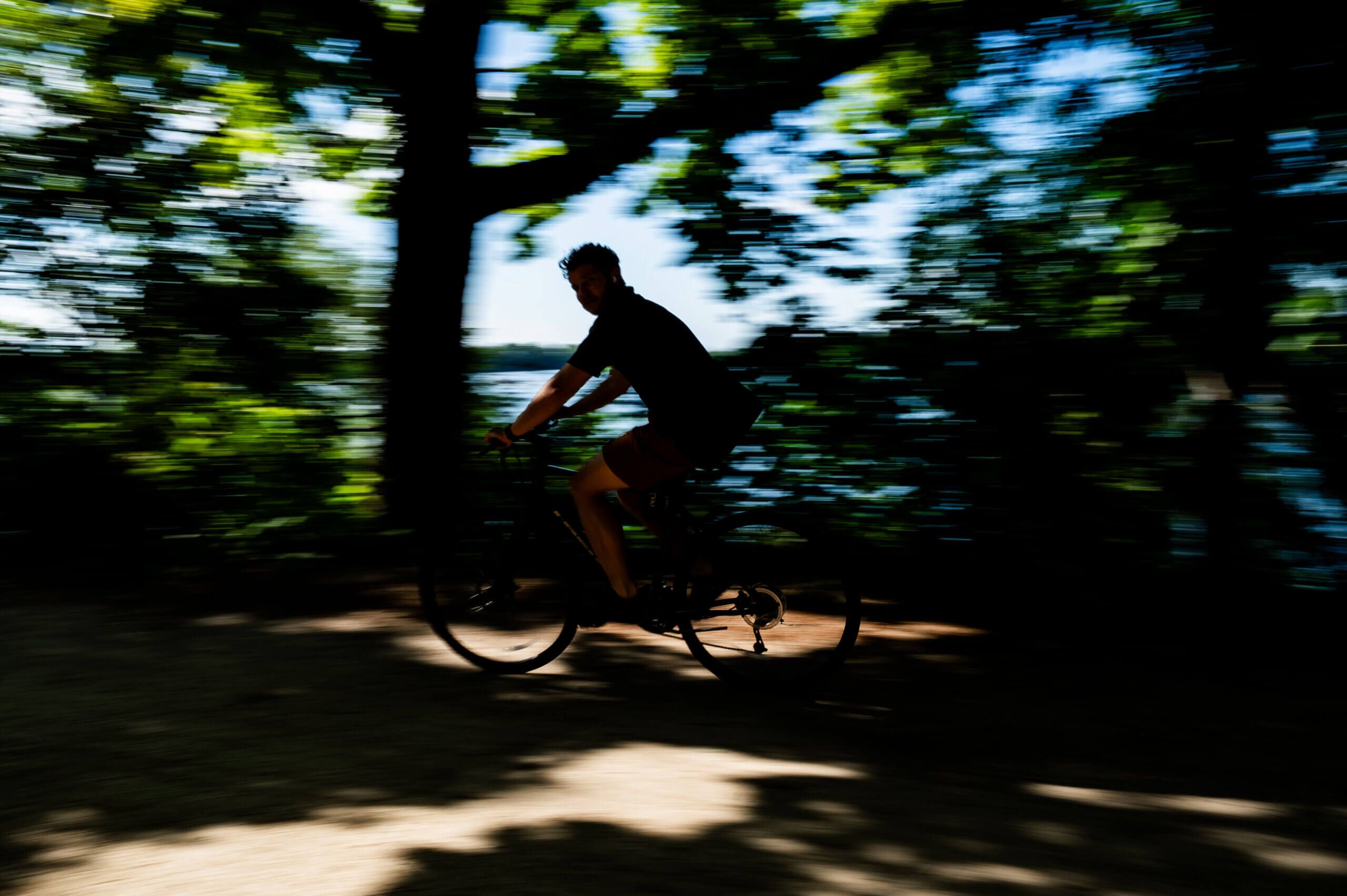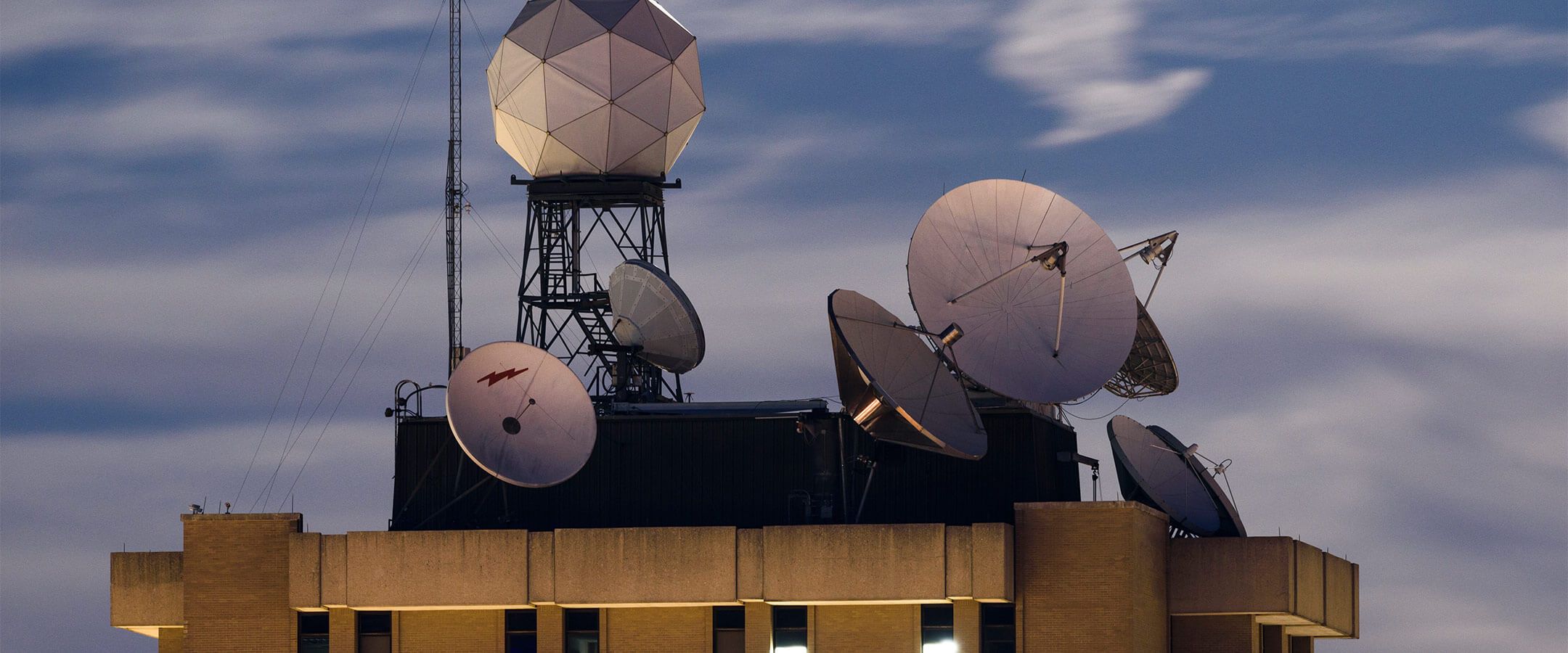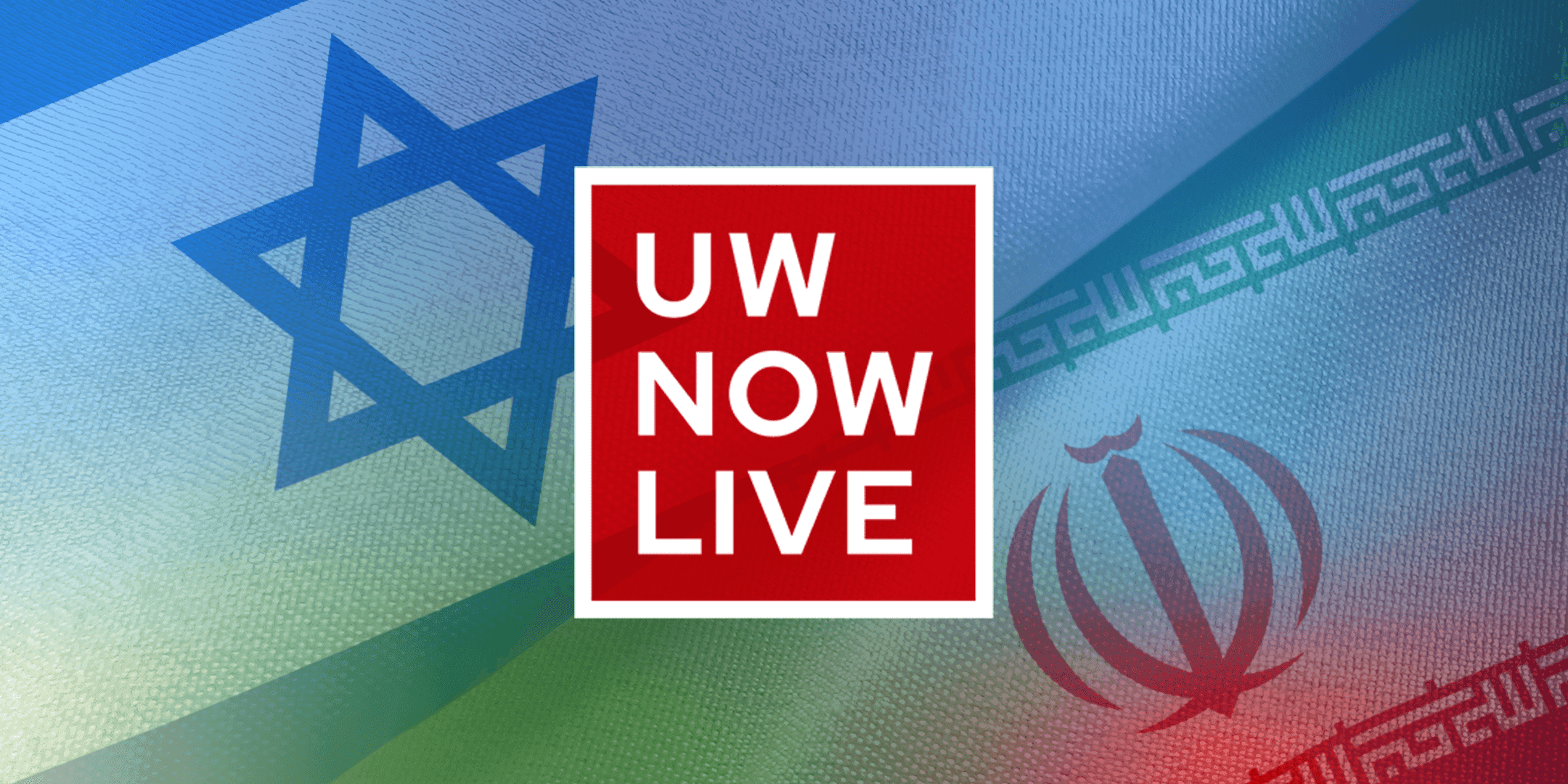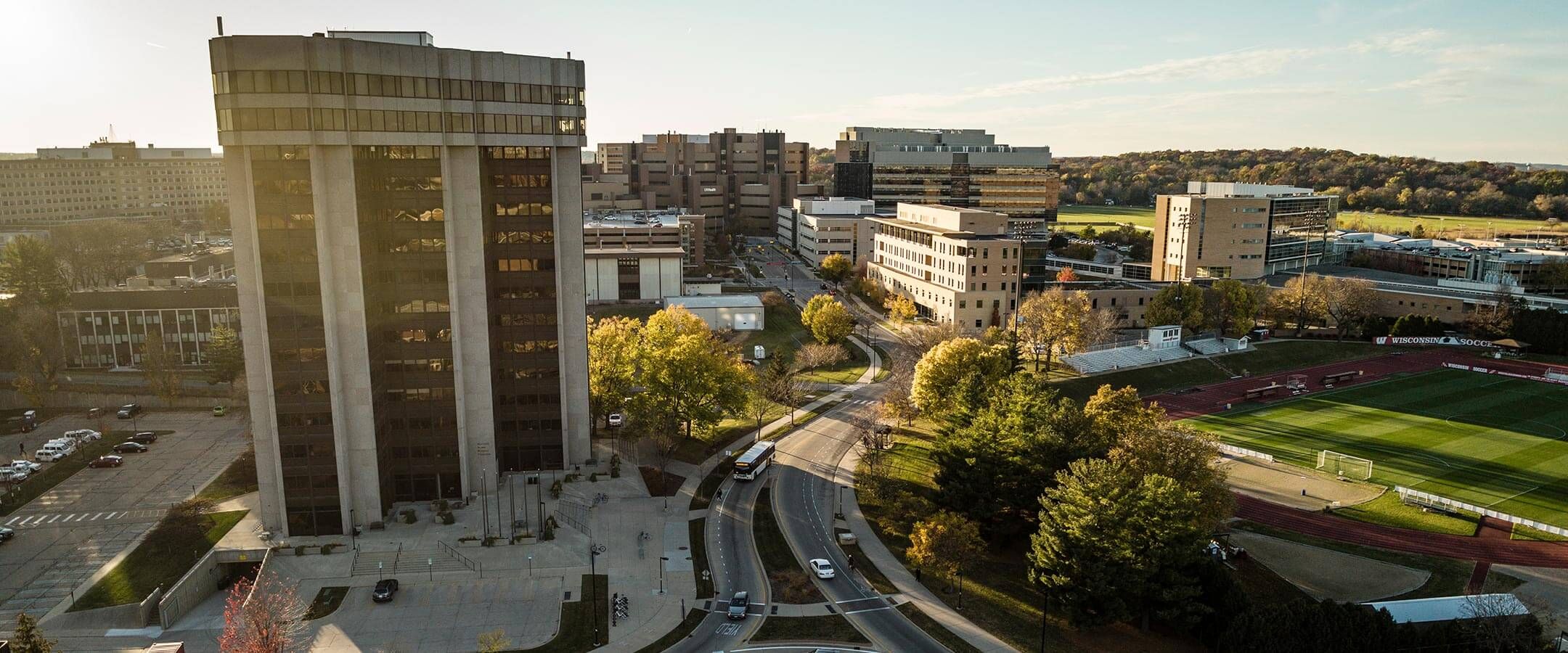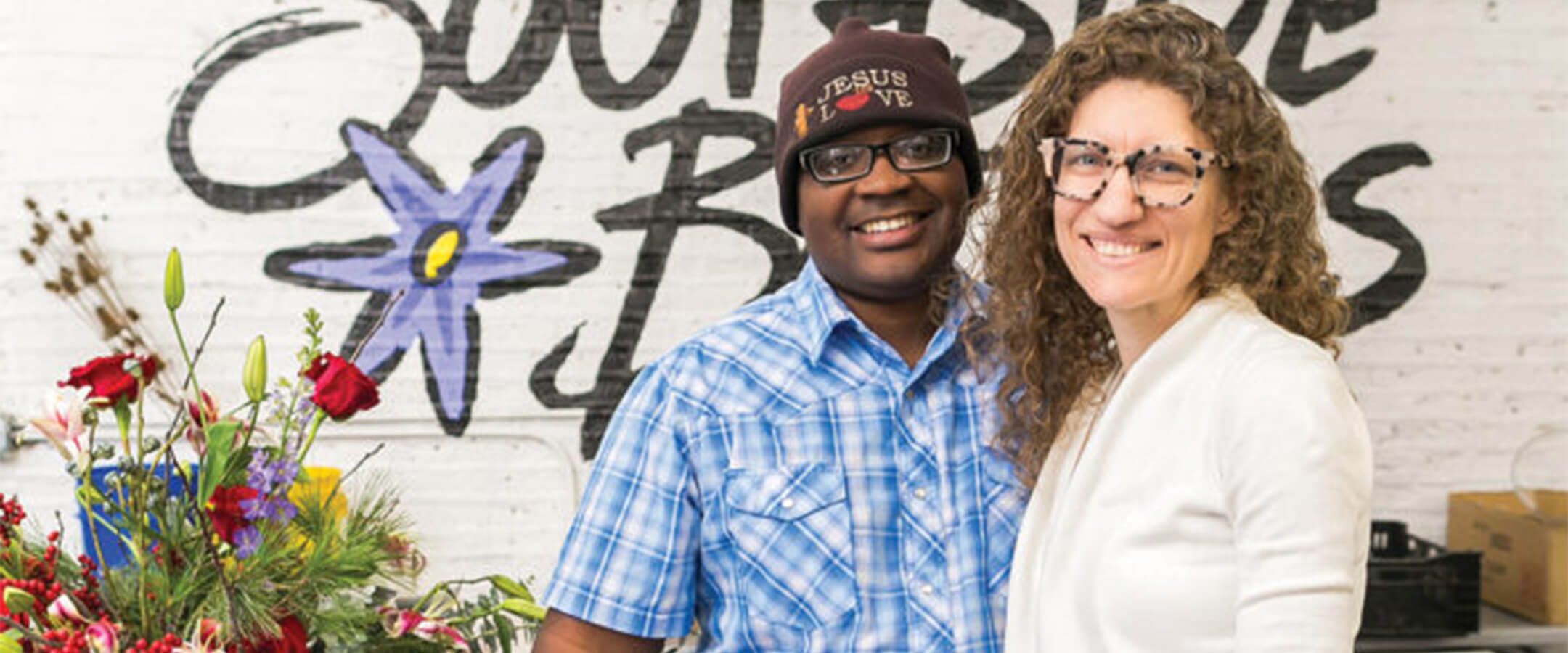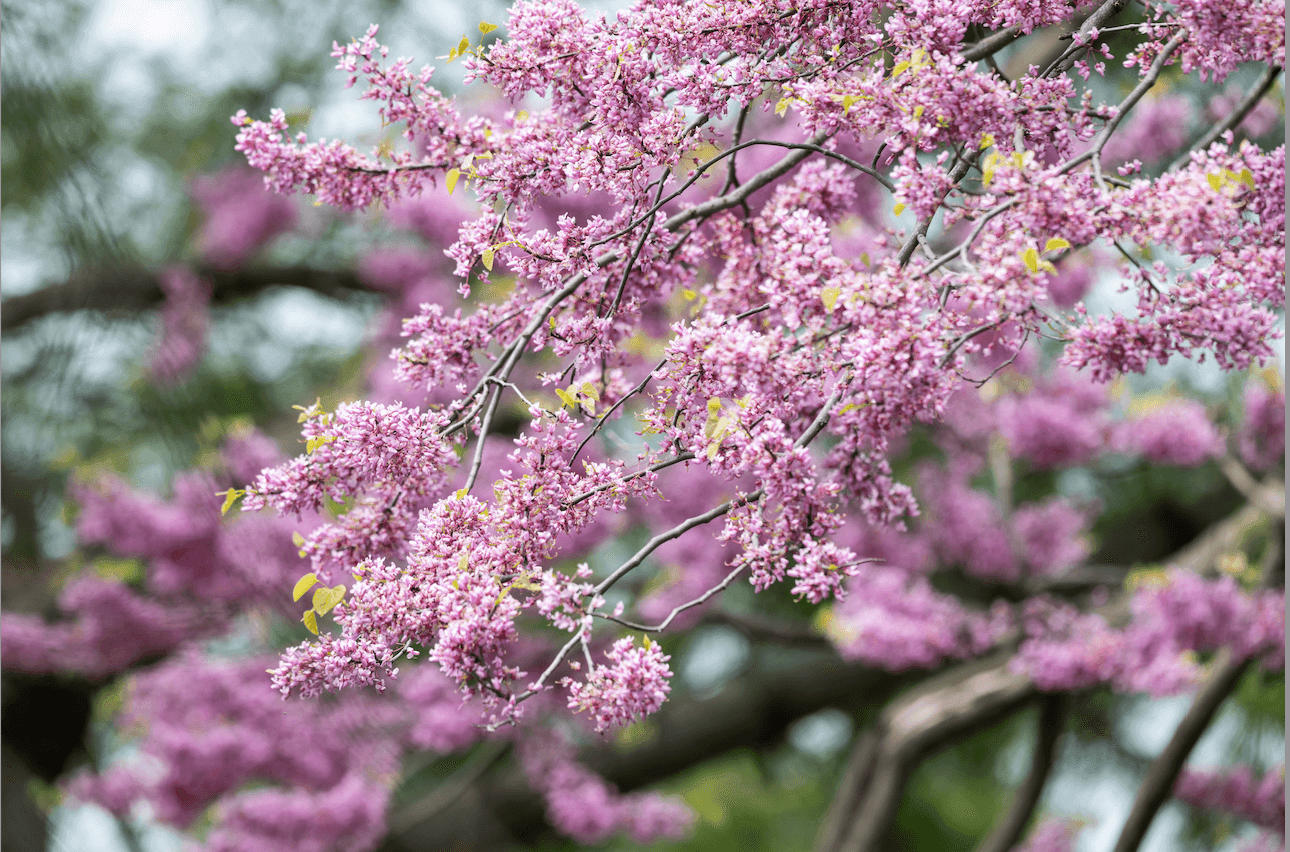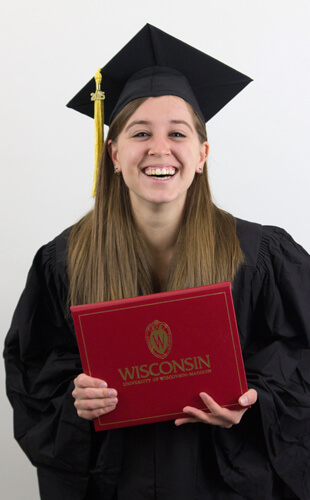
When Kayla Sippl interned at a Kenyan hospital during a study-abroad program, she noticed something odd. There wasn’t any soap in the patient bathrooms. Now, this may seem like a common-sense oversight to us. But to Kenyans, it was simply the way of things. Sippl knew that she could make a difference — and that by making a difference, she would help minimize preventable illness and death.
At its heart, the Wisconsin Idea is about making the world a better place for all of the people in it, and the belief that this change can stem from what we do here every day. It is a belief that Sippl took to heart as she organized her remedy to the problem she saw. It turns out that she didn’t need to look further than her own past.
Since she was a girl, Sippl and her mother would make soap together. It is a relatively simple process; achievable with materials that Kenyans have readily available to them. “I figured I wouldn’t be able to single-handedly solve the problem,” she said, “but maybe introducing how easy it is to make soap to some communities would help.”
After establishing a network of resources to help bring the plan to life, Sippl applied for the Wisconsin Idea Undergraduate Fellowship, a program dedicated to supporting the continuation of the Wisconsin Idea.
From there, she experimented with soap-making techniques in her apartment. She then designed training programs and workshops to bring to African villages. And after months of hard work, she was able to return to Kenya and work with community leaders to teach the art of soap making. The endeavor is more than a public-health matter. People within the community can use the soap to generate income.
